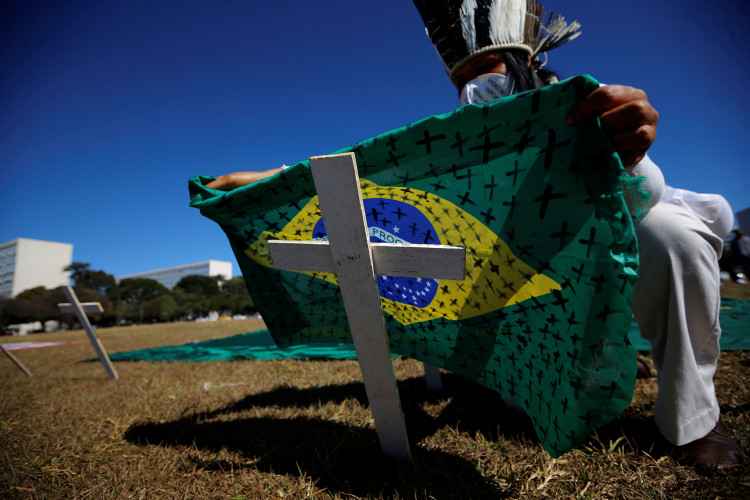Indigenous communities are among the hardest-hit by the international virus crisis as weak health systems fall apart, elders fall victim to the virus and Indigenous voices are left unheard.
Brazil's Yanomami Tribe Invaded by Virus
Brazil's Amazon is home to dozens of Indigenous groups that have been living in the forests for thousands of years - but the novel coronavirus is forcing them from their homes.
Deep in the Amazon, the Yanomami tribe, estimated to number around 27,000, has been infected by COVID-19, health authorities say.
Many of the Yanomami contracted the disease outside Amazon homelands but others have been infected inside their reclusive jungle territories. This indicates the coronavirus has managed to enter the Amazon.
It is believed illegal miners may have helped bring COVID-19 to the Yanomami territory as the Brazil government hasn't established laws to stop miners infiltrating Indigenous grounds.
So far, health officials have reported at least 700 confirmed coronavirus cases among the Yanomami people. Around six have died. Many others have yet to be tested.
Indigenous communities of the Amazonian forests have either little or no health care.
Aboriginal Australians: 'Out of Control' During Early Days Of Pandemic
In Western Australia, the Aboriginal communities of Halls Creek recalled how they first reacted to news of the novel coronavirus.
Halls Creek, which is around 500 kilometers from the Northern Territory border, has a majority of Indigenous people, and when four health care providers at the hospital tested COVID-19 positive things turned chaotic.
Shire President Malcolm Edwards said there was discrimination toward health care workers during the early days of the health crisis and "things were a bit out of control."
However, Edwards said in recent months joint efforts between the Kimberley Aboriginal Medical Service and the WA Country Health Service helped calm the Indigenous people.
The novel coronavirus' threat continues around the small outback town and health groups continue to call for increased protection for Aboriginal communities.
Native Communities In Canada Call For Transparent Case Data
Meanwhile in Canada, native communities are calling for the government to release actual COVID-19 case and location data so they can better protect themselves from the virus.
Heiltsuk Tribal Council chief Marilyn Slett said that being informed about where positive cases were would help Indigenous people avoid these places.
President of the Nuu-chan-nulth Tribal Council Judith Sayers concurred with Slett. For Sayers, knowing about COVID-19 cases either within Indigenous territory or outside would encourage native people "to be more cautious."
Chiefs in the Canadian Aboriginal coalition filed a complaint last week to ask for help from the British Columbia province's privacy commission as B.C. Health doesn't provide coronavirus data for specific communities or cities.
B.C. Health releases detailed information about COVID-19 cases only when a community outbreak is confirmed. Health officials previously said privacy concerns were the reason for the existing data policy.





